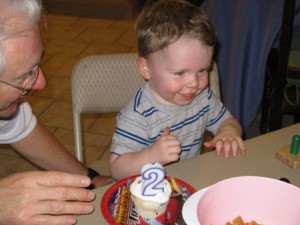Positive Psychology: Raising Happy, Kind Children Evolutionarily Adaptive
Do Kinder People Have an Evolutionary Advantage?
“Positive psychology” research indicates that the kinder you are, the more likely you are to survive — and evolve. Quoted from March 4, 2010 article from AlterNet, by Yasmin Anwar:
In contrast to “every man for himself” interpretations of Charles Darwin’s theory of evolution by natural selection, Dacher Keltner, a UC Berkeley psychologist and author of “Born to be Good: The Science of a Meaningful Life,” and his fellow social scientists are building the case that humans are successful as a species precisely because of our nurturing, altruistic and compassionate traits.
They call it “survival of the kindest.”
“Because of our very vulnerable offspring, the fundamental task for human survival and gene replication is to take care of others,” said Keltner, co-director of UC Berkeley’s Greater Good Science Center. “Human beings have survived as a species because we have evolved the capacities to care for those in need and to cooperate. As Darwin long ago surmised, sympathy is our strongest instinct.”
…While much of the positive psychology being studied around the nation is focused on personal fulfillment and happiness, UC Berkeley researchers have narrowed their investigation into how it contributes to the greater societal good.
One outcome is the campus’s Greater Good Science Center, a West Coast magnet for research on gratitude, compassion, altruism, awe and positive parenting, whose benefactors include the Metanexus Institute, Tom and Ruth Ann Hornaday and the Quality of Life Foundation.
Christine Carter, executive director of the Greater Good Science Center, is creator of the “Science for Raising Happy Kids” Web site, whose goal, among other things, is to assist in and promote the rearing of “emotionally literate” children. Carter translates rigorous research into practical parenting advice. She says many parents are turning away from materialistic or competitive activities, and rethinking what will bring their families true happiness and well-being.
“I’ve found that parents who start consciously cultivating gratitude and generosity in their children quickly see how much happier and more resilient their children become,” said Carter, author of “Raising Happiness: 10 Simple Steps for More Joyful Kids and Happier Parents” which will be in bookstores in February 2010. “What is often surprising to parents is how much happier they themselves also become.” Read whole article
See our own Creative Edge education model, teaching basic “emotional literacy” self-help skills of Intuitive Focusing and Focused Listening to increase creativity and empathy throughout life.
Free Downloads:
Complete Focusing Instructions Manual (17 pages)
“Ajas” Instantaneos Mini-Manual
Creative Edge Focusing (TM) (www.cefocusing.com ) teaches two basic self-help skills, Intuitive Focusing and Focused Listening, which can be applied at home and at work through The Creative Edge Focusing Pyramid.
Based upon Gendlin’s Experiential Focusing (www.focusing.org ) and Rogers’ Empathic Listening, our website is packed with Free Resources and instructions in these basic self-help skills. Learn how to build Support Groups, Conscious Relationships, and Creative Edge Organizations based upon these basic skills of emotional intelligence.
Resources: Free Articles, Training, Classes
Dr. Kathy McGuire, Director
The site of new insights and creative solutions is at the edge of what is already known. This edge, The Creative Edge, holds implicit within it all past and future knowing about the problem, more than could ever be put into words in a linear way
